Rochester (UK Parliament constituency)
Rochester was a parliamentary constituency in Kent. It returned two members of parliament (MPs) to the House of Commons of England from 1295 to 1707, then to the House of Commons of Great Britain from 1708 to 1800, and finally to the House of Commons of the Parliament of the United Kingdom from 1801 until the 1885 general election, when its representation was reduced to one seat.
| Rochester | |
|---|---|
| Former Borough constituency for the House of Commons | |
| County | Kent |
| 1295–1918 | |
| Number of members | 1295–1885: Two 1885–1918: One |
| Replaced by | Chatham Gillingham |
In 1918, it was split between Chatham and Gillingham. The Chatham seat became Rochester and Chatham in 1950, and then Medway in 1983. When the boroughs of Rochester upon Medway and Gillingham merged to form the larger unitary Borough of Medway in 1998, the Parliamentary constituency of Medway only covered part of the new borough, so for the 2010 election it was renamed Rochester and Strood.
Members of Parliament
MPs 1295–1640
| Parliament | First member | Second member | |
|---|---|---|---|
| 1386 | John Fleming | Peter Pope[1] | |
| 1388 (Feb) | William Gillingham I | John Marchaunt I[1] | |
| 1388 (Sep) | Richard Crowborough | Thomas White[1] | |
| 1390 (Jan) | Richard Bolour | John Mateshale[1] | |
| 1390 (Nov) | |||
| 1391 | Thomas Dudmere | William Gillingham II[1] | |
| 1393 | William Chylynden | William Osbourne[1] | |
| 1394 | |||
| 1395 | Richard Broke | Thomas Taverner[1] | |
| 1397 (Jan) | John Plomer II | John Precy[1] | |
| 1397 (Sep) | |||
| 1399 | William Frere | John Precy[1] | |
| 1401 | Richard Berde | Reynold Shrewsbury[1] | |
| 1402 | Thomas Dudmere | Reynold Shrewsbury[1] | |
| 1404 (Jan) | Thomas Dunston | William Frere[1] | |
| 1404 (Oct) | Thomas Dudmere | Richard Lorkyn[1] | |
| 1406 | Thomas Chertsey | Reynold Shrewsbury[1] | |
| 1407 | John Everard I | John Bosom[1] | |
| 1410 | John Alcate | Thomas Chertsey[1] | |
| 1411 | John Everard I | Roger Landford[1] | |
| 1413 (Feb) | |||
| 1413 (May) | John Deeping | Roger Landford[1] | |
| 1414 (Apr) | |||
| 1414 (Nov) | John Deeping | Richard Lorkyn[1] | |
| 1415 | |||
| 1416 (Mar) | Robert Bury | John Potager[1] | |
| 1416 (Oct) | |||
| 1417 | Thomas Bolour | John Marchaunt III[1] | |
| 1419 | William Hunt I | Robert Kela[1] | |
| 1420 | John Draper | Thomas Turner[1] | |
| 1421 (May) | |||
| 1421 (Dec) | John Deeping | John Marchaunt III[1] | |
| 1510–1523 | No names known[2] | ||
| 1529 | Nicholas Hurleston, died and repl. by 1533 by Edmund Page | Robert Fisher[2] | |
| 1536 | ? | ||
| 1539 | ? | ||
| 1542 | ? | ||
| 1545 | Sir Thomas Moyle | William Roper[2] | |
| 1547 | Sir Thomas Moyle | William Roper[2] | |
| 1553 (Mar) | Sir John Norton | Christopher Roper[2] | |
| 1553 (Oct) | Sir Thomas Moyle | Robert Darknall[2] | |
| 1554 (Apr) | Sir Thomas Moyle | William Roper[2] | |
| 1554 (Nov) | William Roper | Edward Baeshe[2] | |
| 1555 | Sir George Howard | William Brooke, 10th Baron Cobham[2] | |
| 1558 | Hugh Cartwright | Thomas Page[2] | |
| 1559 | Edward Baeshe | Thomas Brooke alias Cobham[3] | |
| 1562/3 | Edward Baeshe | Richard Watts[3] | |
| 1571 | William Holstock | George Catlyn[3] | |
| 1572 | George Catelyn | William Partridge, sick and repl. 1579 by Samuel Coxe[3] | |
| 1584 | William Brooke alias Cobham | George Byng[3] | |
| 1586 | William Brooke alias Cobham | William Lewin[3] | |
| 1588 | William Lewin | John Stanhope[3] | |
| 1593 | William Lewin | George Chowne[3] | |
| 1597 | Sir Edward Hoby | Sir Thomas Walsingham[3] | |
| 1601 | Sir Edward Hoby | Sir Thomas Walsingham[3] | |
| 1604 | Sir Edward Hoby | Sir Thomas Walsingham | |
| 1614 | Sir Edward Hoby | Sir Anthony Aucher refused to serve and replaced by Sir Edwin Sandys | |
| 1621–1622 | Sir Thomas Walsingham (younger) | Henry Clerke | |
| 1624 | Maximilian Dallison | Sir Thomas Walsingham (younger) | |
| 1625 | Henry Clerke | Sir Thomas Walsingham (younger) | |
| 1626 | Henry Clerke | Sir Thomas Walsingham (younger) | |
| 1628 | Sir Thomas Walsingham (younger) | William Brooke | |
| 1629–1640 | No Parliaments summoned | ||
MPs 1640–1885
MPs 1885–1918
| Election | Member | Party | |
|---|---|---|---|
| 1885 | Francis Hughes-Hallett | Conservative | |
| 1889 by-election | Edward Knatchbull-Hugessen | Liberal | |
| 1892 | Horatio Davies | Conservative | |
| 1893 by-election | James Gascoyne-Cecil | Conservative | |
| 1903 by-election | Charles Tuff | Conservative | |
| 1906 | Ernest Lamb | Liberal | |
| 1910 | Samuel Forde Ridley | Conservative | |
| 1910 | Sir Ernest Lamb | Liberal | |
| 1918 | constituency abolished: see Chatham and Gillingham | ||
Elections
| Decades: |
Elections in the 1830s
| Party | Candidate | Votes | % | ±% | |
|---|---|---|---|---|---|
| Whig | Ralph Bernal | 429 | 36.2 | ||
| Tory | George Child Villiers | 417 | 35.2 | ||
| Tory | John Mills | 339 | 28.6 | ||
| Turnout | 778 | c. 74.1 | |||
| Registered electors | c. 1,050 | ||||
| Majority | 12 | 1.0 | |||
| Whig hold | Swing | ||||
| Majority | 78 | 6.6 | |||
| Tory hold | Swing | ||||
| Party | Candidate | Votes | % | ||
|---|---|---|---|---|---|
| Whig | Ralph Bernal | Unopposed | |||
| Tory | John Mills | Unopposed | |||
| Registered electors | c. 1,050 | ||||
| Whig hold | |||||
| Tory hold | |||||
| Party | Candidate | Votes | % | ||
|---|---|---|---|---|---|
| Whig | Ralph Bernal | 354 | 35.5 | ||
| Tory | John Mills | 350 | 35.1 | ||
| Whig | George Lewes Newnham Collingwood | 293 | 29.4 | ||
| Turnout | 650 | 66.8 | |||
| Registered electors | 973 | ||||
| Majority | 4 | 0.4 | |||
| Whig hold | |||||
| Majority | 57 | 5.7 | |||
| Tory hold | |||||
| Party | Candidate | Votes | % | ±% | |
|---|---|---|---|---|---|
| Whig | Ralph Bernal | 502 | 36.2 | +0.7 | |
| Whig | Thomas Twisden Hodges | 443 | 31.9 | +2.5 | |
| Conservative | Charles Wellesley | 442 | 31.9 | −3.2 | |
| Majority | 1 | 0.0 | −0.4 | ||
| Turnout | 873 | 90.3 | +23.5 | ||
| Registered electors | 967 | ||||
| Whig hold | Swing | +1.2 | |||
| Whig gain from Conservative | Swing | +2.1 | |||
| Party | Candidate | Votes | % | ±% | |
|---|---|---|---|---|---|
| Whig | Ralph Bernal | 489 | 26.9 | −41.2 | |
| Radical | Thomas Hobhouse | 473 | 26.0 | N/A | |
| Conservative | James Douglas Stoddart Douglas | 445 | 24.5 | +8.6 | |
| Conservative | Thomas Best[23] | 412 | 22.6 | +6.7 | |
| Turnout | 913 | 90.0 | −0.3 | ||
| Registered electors | 1,015 | ||||
| Majority | 16 | 0.9 | +0.9 | ||
| Whig hold | Swing | −28.3 | |||
| Majority | 28 | 1.5 | N/A | ||
| Radical gain from Whig | Swing | N/A | |||
Elections in the 1840s
| Party | Candidate | Votes | % | ±% | |
|---|---|---|---|---|---|
| Conservative | James Douglas Stoddart Douglas | 541 | 26.7 | +2.2 | |
| Conservative | William Bodkin | 499 | 24.6 | +2.0 | |
| Whig | William Elliot-Murray-Kynynmound | 497 | 24.5 | +11.1 | |
| Whig | Francis Dashwood[24][25] | 489 | 24.1 | +10.7 | |
| Majority | 2 | 0.1 | N/A | ||
| Turnout | 1,019 | 89.5 | −0.5 | ||
| Registered electors | 1,139 | ||||
| Conservative gain from Radical | Swing | −4.4 | |||
| Conservative gain from Whig | Swing | −4.5 | |||
| Party | Candidate | Votes | % | ±% | |
|---|---|---|---|---|---|
| Whig | Ralph Bernal | 637 | 29.2 | +4.7 | |
| Whig | Thomas Twisden Hodges | 617 | 28.3 | +4.2 | |
| Conservative | William Bodkin | 464 | 21.3 | −3.3 | |
| Conservative | James Douglas Stoddart Douglas | 462 | 21.2 | −5.5 | |
| Majority | 153 | 7.0 | N/A | ||
| Turnout | 1,090 (est) | 75.1 (est) | −14.4 | ||
| Registered electors | 1,451 | ||||
| Whig gain from Conservative | Swing | +4.6 | |||
| Whig gain from Conservative | Swing | +4.3 | |||
Elections in the 1850s
| Party | Candidate | Votes | % | ±% | |
|---|---|---|---|---|---|
| Conservative | Francis Child Villiers | 584 | 26.7 | +5.4 | |
| Conservative | Thomas Herbert Maddock | 581 | 26.6 | +5.4 | |
| Whig | Ralph Bernal | 514 | 23.5 | −5.7 | |
| Whig | Thomas Twisden Hodges | 507 | 23.2 | −5.1 | |
| Majority | 67 | 3.1 | N/A | ||
| Turnout | 1,093 (est) | 86.1 (est) | +11.0 | ||
| Registered electors | 1,269 | ||||
| Conservative gain from Whig | Swing | +5.4 | |||
| Conservative gain from Whig | Swing | +5.4 | |||
Villiers resigned, causing a by-election.
| Party | Candidate | Votes | % | ±% | |
|---|---|---|---|---|---|
| Radical | Philip Wykeham Martin | 560 | 52.9 | +6.2 | |
| Conservative | William Bodkin | 499 | 47.1 | −6.2 | |
| Majority | 61 | 5.8 | N/A | ||
| Turnout | 1,059 | 90.5 | +4.4 | ||
| Registered electors | 1,170 | ||||
| Radical gain from Conservative | Swing | +6.2 | |||
| Party | Candidate | Votes | % | ±% | |
|---|---|---|---|---|---|
| Radical | Philip Wykeham Martin | Unopposed | |||
| Radical | John Alexander Kinglake | Unopposed | |||
| Registered electors | 1,180 | ||||
| Radical gain from Conservative | |||||
| Radical gain from Conservative | |||||
| Party | Candidate | Votes | % | ±% | |
|---|---|---|---|---|---|
| Liberal | Philip Wykeham Martin | 665 | 28.6 | N/A | |
| Liberal | John Alexander Kinglake | 662 | 28.5 | N/A | |
| Conservative | George Henry Money[26] | 505 | 21.7 | New | |
| Conservative | George Mitchell[27] | 493 | 21.2 | New | |
| Majority | 157 | 6.8 | N/A | ||
| Turnout | 1,163 (est) | 81.9 (est) | N/A | ||
| Registered electors | 1,419 | ||||
| Liberal hold | Swing | N/A | |||
| Liberal hold | Swing | N/A | |||
Elections in the 1860s
| Party | Candidate | Votes | % | ±% | |
|---|---|---|---|---|---|
| Liberal | Philip Wykeham Martin | 855 | 41.5 | +12.9 | |
| Liberal | John Alexander Kinglake | 792 | 38.4 | +9.9 | |
| Conservative | Alfred Smee | 414 | 20.1 | −22.8 | |
| Majority | 378 | 18.3 | +11.5 | ||
| Turnout | 1,238 (est) | 84.9 (est) | +3.0 | ||
| Registered electors | 1,458 | ||||
| Liberal hold | Swing | +12.4 | |||
| Liberal hold | Swing | +10.7 | |||
| Party | Candidate | Votes | % | ±% | |
|---|---|---|---|---|---|
| Liberal | Philip Wykeham Martin | 1,458 | 42.1 | +0.6 | |
| Liberal | John Alexander Kinglake | 1,305 | 37.7 | −0.7 | |
| Conservative | Alfred Smee | 703 | 20.3 | +0.2 | |
| Majority | 602 | 17.4 | −0.9 | ||
| Turnout | 2,085 (est) | 81.1 (est) | −3.8 | ||
| Registered electors | 2,569 | ||||
| Liberal hold | Swing | +0.3 | |||
| Liberal hold | Swing | −0.4 | |||
Elections in the 1870s
Kinglake's death caused a by-election.
| Party | Candidate | Votes | % | ±% | |
|---|---|---|---|---|---|
| Liberal | Julian Goldsmid | 987 | 64.2 | −15.6 | |
| Ind. Conservative | Charles James Fox[28] | 550 | 35.8 | New | |
| Majority | 437 | 28.4 | +11.0 | ||
| Turnout | 1,537 | 59.8 | −21.3 | ||
| Registered electors | 2,571 | ||||
| Liberal hold | Swing | N/A | |||
| Party | Candidate | Votes | % | ±% | |
|---|---|---|---|---|---|
| Liberal | Philip Wykeham Martin | 1,206 | 37.9 | −4.2 | |
| Liberal | Julian Goldsmid | 1,144 | 35.9 | −1.8 | |
| Conservative | Alfred Smee[29] | 835 | 26.2 | +5.9 | |
| Majority | 309 | 9.7 | −7.7 | ||
| Turnout | 2,010 (est) | 75.1 (est) | −6.0 | ||
| Registered electors | 2,676 | ||||
| Liberal hold | Swing | −3.6 | |||
| Liberal hold | Swing | −2.4 | |||
Martin's death caused a by-election.
| Party | Candidate | Votes | % | ±% | |
|---|---|---|---|---|---|
| Liberal | Arthur Otway | 1,284 | 56.1 | −17.7 | |
| Conservative | Walter Scott Seton-Karr[30] | 1,004 | 43.9 | +17.7 | |
| Majority | 280 | 12.2 | +2.5 | ||
| Turnout | 2,288 | 80.8 | +5.7 | ||
| Registered electors | 2,832 | ||||
| Liberal hold | Swing | −17.7 | |||
Elections in the 1880s
| Party | Candidate | Votes | % | ±% | |
|---|---|---|---|---|---|
| Liberal | Arthur Otway | 1,497 | 27.2 | −10.7 | |
| Conservative | Roger Leigh | 1,393 | 25.3 | +12.2 | |
| Conservative | Walter Scott Seton-Karr[30] | 1,312 | 23.9 | +10.8 | |
| Liberal | Julian Goldsmid | 1,294 | 23.5 | −12.4 | |
| Turnout | 2,748 (est) | 90.8 (est) | +15.7 | ||
| Registered electors | 3,026 | ||||
| Majority | 104 | 1.9 | −7.8 | ||
| Liberal hold | Swing | −10.8 | |||
| Majority | 18 | 0.4 | N/A | ||
| Conservative gain from Liberal | Swing | +12.3 | |||

| Party | Candidate | Votes | % | ±% | |
|---|---|---|---|---|---|
| Conservative | Francis Hughes-Hallett | 1,627 | 54.0 | +4.8 | |
| Liberal | John Passmore Edwards | 1,386 | 46.0 | −4.7 | |
| Majority | 241 | 8.0 | +7.6 | ||
| Turnout | 3,013 | 91.2 | +0.4 (est) | ||
| Registered electors | 3,304 | ||||
| Conservative hold | Swing | +4.7 | |||
| Party | Candidate | Votes | % | ±% | |
|---|---|---|---|---|---|
| Conservative | Francis Hughes-Hallett | 1,602 | 54.2 | +0.2 | |
| Liberal | Francis Flint Belsey | 1,353 | 45.8 | -0.2 | |
| Majority | 249 | 8.4 | +0.4 | ||
| Turnout | 2,955 | 89.4 | -1.8 | ||
| Registered electors | 3,304 | ||||
| Conservative hold | Swing | +0.2 | |||
Hughes-Hallett resigned, causing a by-election.
| Party | Candidate | Votes | % | ±% | |
|---|---|---|---|---|---|
| Liberal | Edward Knatchbull-Hugessen | 1,655 | 51.2 | +5.4 | |
| Conservative | Horatio Davies | 1,580 | 48.8 | -5.4 | |
| Majority | 75 | 2.4 | N/A | ||
| Turnout | 3,235 | 91.1 | +1.7 | ||
| Registered electors | 3,550 | ||||
| Liberal gain from Conservative | Swing | +5.4 | |||
Elections in the 1890s
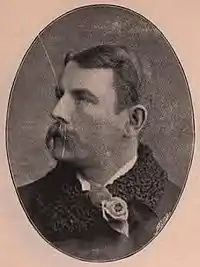
| Party | Candidate | Votes | % | ±% | |
|---|---|---|---|---|---|
| Conservative | Horatio Davies | 2,119 | 55.3 | +1.1 | |
| Liberal | Frederic Brunning Maddison[32] | 1,712 | 44.7 | −1.1 | |
| Majority | 407 | 10.6 | +2.2 | ||
| Turnout | 3,831 | 91.0 | +1.6 | ||
| Registered electors | 4,211 | ||||
| Conservative hold | Swing | +1.1 | |||
Davies was unseated on petition, causing a by-election.
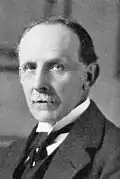
| Party | Candidate | Votes | % | ±% | |
|---|---|---|---|---|---|
| Conservative | James Gascoyne-Cecil | Unopposed | |||
| Conservative hold | |||||
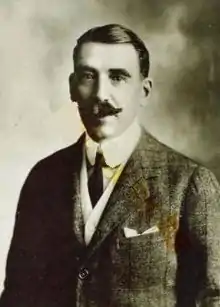
| Party | Candidate | Votes | % | ±% | |
|---|---|---|---|---|---|
| Conservative | James Gascoyne-Cecil | 2,152 | 56.3 | +1.0 | |
| Liberal | Cecil Grenfell | 1,673 | 43.7 | −1.0 | |
| Majority | 479 | 12.6 | +2.0 | ||
| Turnout | 3,825 | 87.4 | −3.6 | ||
| Registered electors | 4,378 | ||||
| Conservative hold | Swing | +1.0 | |||
Elections in the 1900s
| Party | Candidate | Votes | % | ±% | |
|---|---|---|---|---|---|
| Conservative | James Gascoyne-Cecil | Unopposed | |||
| Conservative hold | |||||
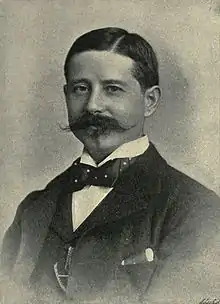
| Party | Candidate | Votes | % | ±% | |
|---|---|---|---|---|---|
| Conservative | Charles Tuff | 2,504 | 55.8 | N/A | |
| Liberal | Harry Johnston | 1,983 | 44.2 | New | |
| Majority | 521 | 11.6 | N/A | ||
| Turnout | 4,487 | 86.2 | N/A | ||
| Registered electors | 5,206 | ||||
| Conservative hold | |||||
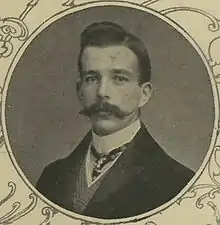
| Party | Candidate | Votes | % | ±% | |
|---|---|---|---|---|---|
| Liberal | Ernest Lamb | 2,967 | 55.6 | N/A | |
| Conservative | Charles Tuff | 2,374 | 44.4 | N/A | |
| Majority | 593 | 11.2 | N/A | ||
| Turnout | 5,341 | 92.7 | N/A | ||
| Registered electors | 5,763 | ||||
| Liberal gain from Conservative | Swing | N/A | |||
Elections in the 1910s
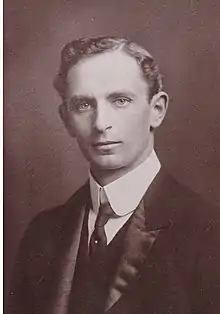
| Party | Candidate | Votes | % | ±% | |
|---|---|---|---|---|---|
| Conservative | Samuel Forde Ridley | 2,675 | 51.3 | +6.9 | |
| Liberal | Ernest Lamb | 2,543 | 48.7 | -6.9 | |
| Majority | 132 | 2.6 | N/A | ||
| Turnout | 5,218 | 92.7 | +0.0 | ||
| Registered electors | 5,629 | ||||
| Conservative gain from Liberal | Swing | +6.9 | |||
| Party | Candidate | Votes | % | ±% | |
|---|---|---|---|---|---|
| Liberal | Ernest Lamb | 2,609 | 51.5 | +2.8 | |
| Conservative | Samuel Forde Ridley | 2,456 | 48.5 | -2.8 | |
| Majority | 153 | 3.0 | N/A | ||
| Turnout | 5,065 | 90.0 | -2.7 | ||
| Registered electors | 5,629 | ||||
| Liberal gain from Conservative | Swing | +2.8 | |||
General Election 1914/15:
Another General Election was required to take place before the end of 1915. The political parties had been making preparations for an election to take place and by July 1914, the following candidates had been selected;
- Liberal: Ernest Lamb
- Unionist:
References
- "History of Parliament". History of Parliament Trust. Retrieved 16 November 2011.
- "History of Parliament". History of Parliament Trust. Retrieved 16 November 2011.
- "History of Parliament". History of Parliament Trust. Retrieved 16 November 2011.
- Vernon was also elected for Ipswich, which he chose to represent, and did not sit for Rochester
- Stooks Smith, Henry. (1973) [1844-1850]. Craig, F. W. S. (ed.). The Parliaments of England (2nd ed.). Chichester: Parliamentary Research Services. pp. 169–171. ISBN 0-900178-13-2.
- Rear Admiral from 1787
- Rear Admiral from 1805
- Farrell, Stephen (2009). "BERNAL, Ralph (1783–1854), of 11 Park Crescent, Mdx". The History of Parliament. Retrieved 2 July 2018.
- "Ralph Bernal". Legacies of British Slave-ownership. University College London. Retrieved 2 July 2018.
- Thompson, Thomas Perronet (1843). Exercises, Political and Others: Vol. IV (2nd ed.). London: Effingham Wilson. p. 222.
- Rubinstein, William D.; Jolles, Michael A.; Rubinstein, Hilary L., eds. (2011). The Palgrave Dictionary of Ango-Jewish History (eBook ed.). Basingstoke: Palgrave Macmillan. p. 84. ISBN 978-0-230-30466-6. Retrieved 2 July 2018.
- "Kentish Independent". 31 July 1847. p. 4. Retrieved 2 July 2018 – via British Newspaper Archive.
- "The General Election". Bath Chronicle and Weekly Gazette. 12 August 1847. p. 4. Retrieved 2 July 2018 – via British Newspaper Archive.
- "The Election for West Kent". Maidstone Journal and Kentish Advertiser. 3 August 1847. p. 3. Retrieved 2 July 2018 – via British Newspaper Archive.
- "General Elections". Berkshire Chronicle. 29 July 1837. p. 1. Retrieved 14 May 2018 – via British Newspaper Archive.
- "Domestic Intelligence". Dundee, Perth, and Cupar Advertiser. 21 March 1848. p. 1. Retrieved 14 May 2018 – via British Newspaper Archive.
- Craig, F. W. S., ed. (1977). British Parliamentary Election Results 1832-1885 (e-book)
|format=requires|url=(help) (1st ed.). London: Macmillan Press. ISBN 978-1-349-02349-3. - "Rochester Election". London Evening Standard. 8 February 1856. p. 4. Retrieved 2 July 2018 – via British Newspaper Archive.
- "Election Intelligence". Perthshire Advertiser. 14 February 1856. p. 2. Retrieved 2 July 2018 – via British Newspaper Archive.
- "The Week". Maidstone Journal and Kentish Advertiser. 5 February 1856. pp. 4–5. Retrieved 2 July 2018 – via British Newspaper Archive.
- "Election News". Leeds Intelligencer. 14 March 1857. p. 7. Retrieved 2 July 2018 – via British Newspaper Archive.
- Farrell, Stephen. "Rochester". The History of Parliament. Retrieved 21 April 2020.
- "Page 1". West Kent Guardian. 15 July 1837. Retrieved 21 April 2020 – via British Newspaper Archive.
- "Elections Decided". Manchester Courier and Lancashire General Advertiser. 10 July 1841. p. 6. Retrieved 29 November 2018 – via British Newspaper Archive.
- "Globe". 29 June 1841. p. 2. Retrieved 29 November 2018 – via British Newspaper Archive.
- "At Rochester". Maidstone Journal and Kentish Advertiser. 23 April 1859. p. 2. Retrieved 2 July 2018 – via British Newspaper Archive.
- "Rochester Election". Maidstone Journal and Kentish Advertiser. 7 May 1859. p. 1. Retrieved 2 July 2018 – via British Newspaper Archive.
- "Rochester". Manchester Evening News. 19 July 1870. p. 2. Retrieved 18 January 2018 – via British Newspaper Archive.
- "Election Intelligence". Whitstable Times and Herne Bay Herald. 7 February 1874. p. 4. Retrieved 18 January 2018 – via British Newspaper Archive.
- "Haddington Burghs Election". Jedburgh Gazette. 19 August 1882. p. 2. Retrieved 10 December 2017 – via British Newspaper Archive.
- British Parliamentary Election Results 1885-1918, FWS Craig
- "Another Conservative Member of Parliament Unstead". Brooklyn Daily Eagle. 10 December 1892. p. 10. Retrieved 22 November 2017.
- The Liberal Year Book, 1908
- Debrett's House of Commons 1916
- Robert Beatson, "A Chronological Register of Both Houses of Parliament" (London: Longman, Hurst, Res & Orme, 1807)
- D Brunton & D H Pennington, Members of the Long Parliament (London: George Allen & Unwin, 1954)
- Cobbett's Parliamentary history of England, from the Norman Conquest in 1066 to the year 1803 (London: Thomas Hansard, 1808)
- Maija Jansson (ed.), Proceedings in Parliament, 1614 (House of Commons) (Philadelphia: American Philosophical Society, 1988)
- J E Neale, The Elizabethan House of Commons (London: Jonathan Cape, 1949)
- Leigh Rayment's Historical List of MPs – Constituencies beginning with "R" (part 2)